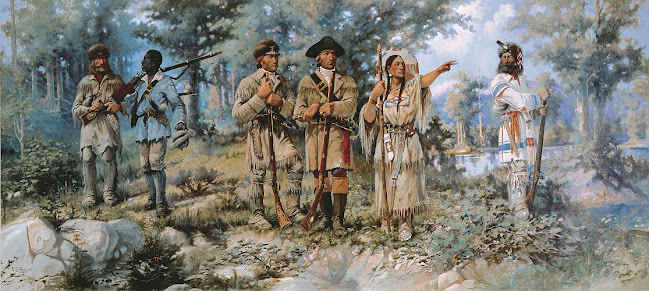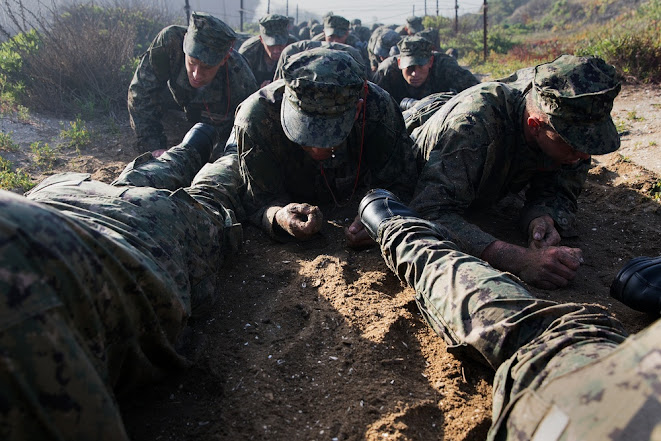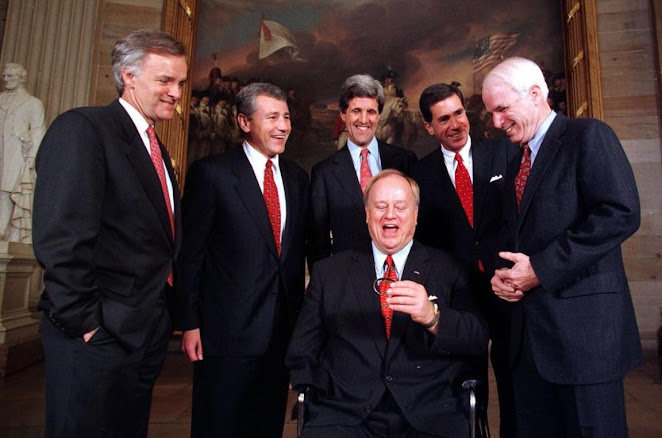Review by Bill Doughty––
As vaccines and drug treatments turn the tide against the pandemic, numerous books document the initial response by the United States to the novel coronavirus pandemic that began at the end of 2019. This one, by one of the nation’s great contemporary writers, tells the story of some of the key people who helped raise the alarm, write the plan, and show how COVID-19 should be confronted.
A team of talented military veterans were at the heart of the effort.
Michael Lewis is the author of “The Premonition: A Pandemic Story” (W.W. Norton, 2021) on the heels of “The Fifth Risk.” He says, “…this particular story is about the curious talents of a society, and how those talents are wasted if not led.”
“Curious talents” perfectly describes some of the main characters in this book, especially Veterans Administration doctor Carter Mecher, epidemiologist Richard Hatchett, and California public health doctor Charity Dean. Mecher is described as an intellectual force of nature, who thinks outside the box and who draws other critical/innovative thinkers together through humility, creativity, and honesty. Lewis refers to all three by their first names throughout the book.
Carter and Richard worked as advisers in the Bush43 and Obama administrations and were involved in pandemic response planning under Tom Bossert, President Trump’s first homeland security advisor. Bossert had previously worked with the two public health experts in the George W. Bush administration. (President Bush directed development of a national pandemic response plan after reading John Barry’s “The Great Influenza.”)*
“But then, on April 9, 2018, Trump hired John Bolton as his national security adviser, and the next day, Bolton fired Tom Bossert, and demoted or fired everyone on the biological threat team,” writes Lewis. Funding for pandemic planning was stripped, the team was disbanded, but fortunately Carter and Richard stayed in touch with each other.
 |
| Dr. Carter Mecher |
Soon after the outbreak occurred in Wuhan, Carter predicted a pandemic and wrote in an email, with H&HS personnel on the string: “History will long remember what we do and what we don’t do at this critical moment. It is time to act and it is past the time to remain silent. This outbreak isn’t going to magically disappear on its own.”
Military readers will be interested to see a team, almost all veterans, who formed around Carter Mecher and Richard Hatchett.
“Seven men, all doctors. All were younger, some a generation younger, than Carter, who about to turn sixty-five. Most had seen combat in Iraq, and all, at one point or another, had worked with Carter in the White House. All except Rajeev Venkayya, who had brought Carter and Richard into the White House in the first place … had served in the military. Duane Caneva and James Lawler had come from the U.S. Navy, Matt Hepburn and Dave Marcozzi from the U.S. Army. And all had a role to play in the event of any pandemic. Lawler ran the Global Center for Health security at the University of Nebraska, for instance. That was a federally funded facility to which any American infected with some deadly new pathogen was likely to be sent to be studied and cared for. They’d treated some of the Ebola patients.”

The team welcomed their California “Wolverette,” Dr. Charity Dean, after she proved her mettle, demanding to act quickly. She pushed for social distancing, greater testing, and temporary school closures. The Wolverines reached out to her because, in the absence of a federal response to the pandemic, they needed a state to take the initiative. California was it.
“The goal was to find at least one state to take the lead and roll out an aggressive response to the virus, introduce the social interventions outlined in the pandemic plan, and create a domino effect. ‘We had to create an epidemic for an idea,’ said Carter. At some point Duane Caneva realized that he had something to add. He’d been in the shock trauma unit that deployed with marines in Falluja, and not much rattled him, but have also know what he didn’t know. He’d worked with Carter Mecher and James Lawler in the Obama White House, but he didn’t regard himself as really being in the same field … Duane had been invited to the White House for National Security Council meetings to discuss what, if anything, to do about this new outbreak in Wuhan. He was disturbed by the lack of understanding, or even information, those meetings. It was at once shocking and unsurprising to Duane that Carter Mecher, sitting at a desk in his bedroom in Atlanta, was creating a clearer view of a virus in China than anyone in the United States government.”

Dr. Dean’s story is one of courage, resilience, and commitment. She overcame personal and professional obstacles and developed what would become a California’s plan, taking the state from nearly last to roughly first in testing, for example. Under Gov. Gavin Newsom, California became the first state to implement a stay-at-home order. Charity Dean’s plan would indeed become the national plan, at least for a time.
She wrote, “This is a case for all Americans to rise collectively in the spirit of patriotism with the same vigor and stubborn resolve that our grandparents’ generation rose to meet the moment of WW2.”
Lessons to Learn
The Wolverine team, along with other “curiously talented” characters, including researcher Joe DeRisi, provide some lessons Lewis captures. These takeaways are worth highlighting:
- “For people to learn the needs to want to learn … People learn, but they might not be learning what you’re teaching them.”
- “… the way to change minds was by first changing hearts. Carter ceased his appeals to reason and began to appeal to emotion –– which is to say that he stopped making an argument and began to tell a story.”
- There was a need to develop a global early warning system to identify infectious diseases, but China is a “black hole” because they have “declined to participate.”
- “The U.S. medical-industrial complex … lurched between lethargy and avarice.”
- “Corporations were interested only in stuff that made money. Academics were interested in anything worthy of publication, but once they had their paper done, they tended to lose interest. The government was meant to fill in the blanks, but he U.S. government by now mystified Joe.”
- “The country badly needed a true network … a system.”
- “The absence of federal leadership had triggered a wild free-for-all in the market for pandemic supplies.”
- “Among other consequences of the White House’s strategy was that it gutted the credibility of the career federal officials.”
- “Leaders with the worse judgement smugly claim they have the best.”
Lewis fills “Premonition” with fascinating metaphors –– from firefighting to fake flowers. This is a book that asks to be read from beginning to end to understand the full force of its title and to see how much influence military veterans had in helping to battle the pandemic, especially with help from Charity Dean in California. Crises require leaders who are competent, decisive and truthful.
 |
| President Donald Trump watches USNS Comfort (T-AH-20) deploy from Norfolk, VA, to New York City, March 28, 2020. (MCC Mike DiMestico) |
Power of Reading
This is also the story of the influence of a great book.* Several times in the narrative, Lewis reveals the impact of “The Great Influenza” by John Barry, a book we reviewed in March 2020 and an author we then interviewed for Navy Reads in April. Barry’s book about the 1918 pandemic that killed an estimated 50 million people worldwide was a clarion call, and an American president heard the alarm.
 |
| President George W. Bush at NIH. |
President George W. Bush read Barry’s book in the aftermath of Katrina, and was moved to establish a “whole-of-society plan” to deal with a pandemic. Barry also informally advised President Obama and his administration.
Carter Mecher read "The Great Influenza" and was moved by the different ways two cities handled the crisis in 1918, Philadelphia and St. Louis. Through his remarkable book, Barry influenced the development of the nation’s pandemic response team and plan in place until 2018.
Lewis cites other books that helped the Wolverines. To provide critical thinking skills, the team read James Reason’s “‘Human Error,’ like an owner’s manual of the human mind,” that showed the “best way to guard against error is to design systems with layered and overlapping defenses” –– like slices of Swiss cheese put back together so there are no apparent holes.
They were also influenced by “Young Men and Fire” by Norman MacLean, author of “A River Runs Through It.”
Charity Dean was moved by William Manchester’s second volume of his biography of Winston Churchill, “Alone,” especially Neville Chamberlain’s failed appeasement policy toward Adolf Hitler after the Nazis invaded Poland and threatened the rest of Europe.
Curiously talented Michael Lewis’s “Premonition” should be read and analyzed by future pandemic fighters for its cool and often mind-blowing insights.
I recommend reading it alongside “Nightmare Scenario” by Yasmeen Abutaleb and Damian Paletta. Theirs is a more detailed, bareknuckled account of the failures of leadership by the Trump administration in confronting the pandemic, especially in the early weeks and months. There is one reference to Carter Mecher and the Red Dawn Wolverines and their emails in “Nightmare” but no mention of James Lawler or Charity Dean. So the books are complementary, each filling in the other’s gaps. And, like John Barry's "The Great Influenza," "Nightmare" shows the biggest needs in a pandemic: a well-led sustained federal response and effective, honest communication to build trust, understanding, and teamwork.
 |
Navy veteran Dr. James Lawler, executive director of international programs and innovation at the Global Center for Health Security at the University of Nebraska Medical Center, gives an overview of the Isolation System for Treatment and Agile Response for high-risk Infections, or ISTARI, to Lt. Gen. Robert L. Miller, U.S. Air Force Surgeon General, Aug. 18, 2021. The ISTARI is located in the Training, Simulation and Quarantine Center in the Davis Global Center at UNMC. (Kent Sievers)
Team Player?
Both books are refreshing to read in the wake of the recent bad news about Aaron Rodgers of the Green Bay Packers. Rodgers, who lost the endorsement this week by Prevea Health over Rodgers's anti-vaccination stance. Rodgers tested positive for COVID even though he said he was immune after reportedly taking various unapproved medications. He said he is taking ivermectin, a drug for treating parasitic worms, because he fears ill effects of the vaccine.
The Associated Press reports, “The COVID-19 vaccines authorized for use in the U.S. were tested in tens of thousands of people and proven to be both safe and effective at dramatically reducing the risk of serious disease and death. The vaccines now have been given to more than 200 million Americans and that real-world use plus extra government safety tracking have made clear that serious side effects are extremely rare — and that any risk is far lower than the risks posed by COVID-19.” |


























